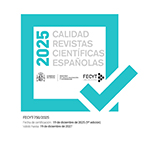Para uma poética do conto brasileiro
Résumé
In this article the author intends to offer to the reader one more possibility of reading and interpretation of the terms poetics and short story, since the semantic load of these terms has suffered deep variations in the 20th century. Regarding Poetics, the author comments on the use and abuse of the term, mainly in academic circles. He shows the etymological relationship of poetics and poetry and the poem, and emphasises Rhetoric; and the different significance that the term is taking at the present time, becoming synonymous with a simple «study»; and people frequently refer to a «poetics of the author», or «of a time, or «of the metaphor», and even «the poetics of the poetry» and «the poetics of poetics». This is the way to reach the title «poetics of the short story», meaning a personal vision on the subject, nevertheless a vision considered «scientific». For the author, the short story must be studied under two perspectives: the oral and the written, and each one must have its special theoretical corpus. It is not possible to separate the genre problem, and those of the relation of short story and poetry, and that of short story and the chronicle. Later, he treats of the emergence of the short story in Brazil, and, as historian, he shows how both critics and short story writers see it as a literary form. Finally, he proposes a classification of the phases of the history of the short story in Brazil, suggesting a formation period (until the 18th century), another of transformation (19th century) and another of confirmation (20th century). As an appendix, the author presents a small bibliography on the oral short story, on the written short story, and on the Brazilian short story in general.Téléchargements
##submission.format##
Licence
La Revista de Filología Románica, para fomentar el intercambio global del conocimiento, facilita el acceso sin restricciones a sus contenidos desde el momento de su publicación en la presente edición electrónica, y por eso es una revista de acceso abierto. Los originales publicados en esta revista son propiedad de la Universidad Complutense de Madrid y es obligatorio citar su procedencia en cualquier reproducción total o parcial. Todos los contenidos se distribuyen bajo una licencia de uso y distribución Creative Commons Reconocimiento 4.0 (CC BY 4.0). Esta circunstancia ha de hacerse constar expresamente de esta forma cuando sea necesario. Puede consultar la versión informativa y el texto legal de la licencia.










